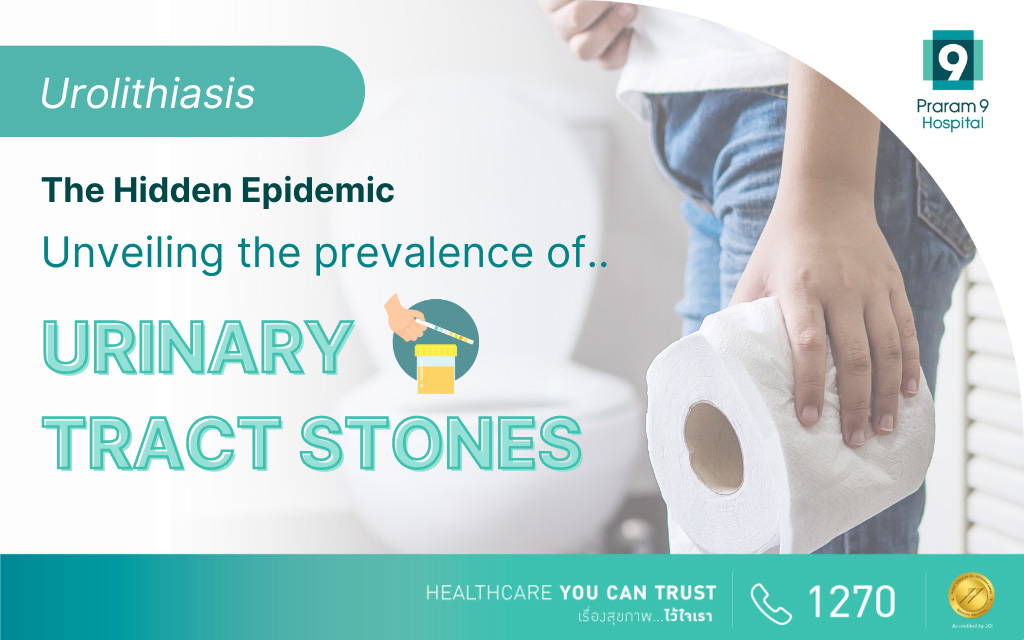
Medical Center Category: Surgery Center


Unveiling the Prevalence of Urinary Tract Stones
Urinary tract stones, also known as urolithiasis or kidney stones, are a prevalent urological condition that affects millions of people globally. This comprehensive article aims to provide you for understanding of urinary tract stones, including their causes, symptoms, diagnostic methods, and various treatment options. What Are Urinary Tract Stones? Urinary tract stones are solid crystalline structures that form within the urinary system, which includes the kidneys, ureters, urinary bladder, and urethra. These stones can vary in size and composition, ranging from tiny to large size like golf ball-sized structures. Causes of Urinary Tract Stones Urinary tract stones can develop from various reasons. The most common types of urinary stones are: Calcium Stones: These are the most prevalent and typically consist of calcium oxalate. High levels of calcium in the urine and oxalate-rich foods can contribute to their formation. Struvite Stones: Struvite stones often from urinary tract infections. They can grow rapidly and may block the urinary tract. Uric Acid Stones: Uric acid stones form when there is an excess of uric acid in the urine, which can occur due to diet, genetics, or certain medical conditions like gout. Cystine Stones: Cystine stones are rare and develop in individuals with a genetic disorder called cystinuria, causing an abnormal buildup of cystine in the urine. Risk Factors of Urinary Tract Stones Numerous factors increase the risk of developing urinary tract stones, including: Dehydration: Insufficient fluid intake can lead to concentrated urine, increasing


Understanding Gallstones: Symptoms, Causes, and Treatment
Learn about gallstones, including causes, symptoms, risk factors, and treatments








Unveiling the Prevalence of Urinary Tract Stones
Urinary tract stones, also known as urolithiasis or kidney stones, are a prevalent urological condition that affects millions of people globally. This comprehensive article aims to provide you for understanding of urinary tract stones, including their causes, symptoms, diagnostic methods, and various treatment options. What Are Urinary Tract Stones? Urinary tract stones are solid crystalline structures that form within the urinary system, which includes the kidneys, ureters, urinary bladder, and urethra. These stones can vary in size and composition, ranging from tiny to large size like golf ball-sized structures. Causes of Urinary Tract Stones Urinary tract stones can develop from various reasons. The most common types of urinary stones are: Calcium Stones: These are the most prevalent and typically consist of calcium oxalate. High levels of calcium in the urine and oxalate-rich foods can contribute to their formation. Struvite Stones: Struvite stones often from urinary tract infections. They can grow rapidly and may block the urinary tract. Uric Acid Stones: Uric acid stones form when there is an excess of uric acid in the urine, which can occur due to diet, genetics, or certain medical conditions like gout. Cystine Stones: Cystine stones are rare and develop in individuals with a genetic disorder called cystinuria, causing an abnormal buildup of cystine in the urine. Risk Factors of Urinary Tract Stones Numerous factors increase the risk of developing urinary tract stones, including: Dehydration: Insufficient fluid intake can lead to concentrated urine, increasing


Understanding Gallstones: Symptoms, Causes, and Treatment
Learn about gallstones, including causes, symptoms, risk factors, and treatments







